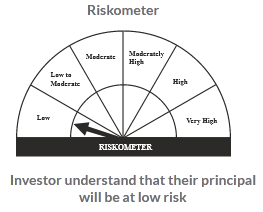Looking for a way to potentially generate consistent returns with lower risk? Arbitrage funds in India might be a good fit for your investment portfolio.

These funds exploit price discrepancies between different markets or securities to earn profits. As per SEBI guidelines on classification, arbitrage funds are classified as hybrid mutual funds.
How Arbitrage Funds Work?
Arbitrage refers to taking advantage of price differences between markets for the same or similar asset to make a profit. It’s essentially a strategy of buying low and selling high, but with a twist: arbitrage involves exploiting short-term discrepancies in prices across different marketplaces.
Imagine a stock trading at ₹100 on the National Stock Exchange (NSE) and ₹102 on the Bombay Stock Exchange (BSE). An arbitrage fund can capitalize on this difference by buying on the NSE and selling on the BSE, pocketing the ₹2 profit.
Overall, arbitrage is a way to capitalize on market inefficiencies and generate profits through quick trades. It’s a strategy employed by both individual investors and large financial institutions.
Reasons to Invest in Arbitrage Fund
-
Diversification: Arbitrage funds provide a way to diversify your investment portfolio by exploiting price differences in related financial instruments across different markets.
-
Risk Mitigation: Arbitrage funds help in reducing the risk of adverse market movements by taking advantage of price discrepancies across related securities in different markets.
-
Consistent Returns: Arbitrage funds aim to generate consistent returns by exploiting price differences in related financial instruments across different markets.
-
Low Volatility: Arbitrage funds have lower volatility compared to other investment options, making them suitable for investors seeking stable returns.
-
Liquidity: Arbitrage funds typically offer high liquidity, allowing you to easily redeem your investment when needed.
-
Low Dependency on Market Timing: Arbitrage funds do not rely heavily on market timing, as they primarily rely on price differences between related financial instruments in different markets.
-
Low Transaction Costs: Arbitrage funds generally have low transaction costs as they involve buying and selling related financial instruments in the secondary market.
-
Tax Efficiency: If held for over a year, arbitrage funds benefit from long-term capital gains tax treatment in India, which is 10% at present. If held for less than 1 year then it will be treated as short-term capital gains. So gains from arbitrage funds can be adjusted against capital loss from other security transactions.
-
Regular Updates: Arbitrage funds are actively managed and continuously monitored, allowing the fund manager to take advantage of new opportunities as they arise.
-
Expertise of Fund Managers: The fund managers responsible for arbitrage funds have extensive experience and expertise in managing such funds, ensuring that your investment is in capable hands.
Where do Arbitrage Funds invest?
Arbitrage funds in India typically invest in a combination of equity and derivative instruments. These funds capitalize on price differentials between the cash and futures market of equities. The strategy involves simultaneously buying and selling securities to profit from the price inefficiencies. Arbitrage funds may also invest in debt instruments to enhance returns or manage risk. Overall, they aim to generate returns by exploiting short-term opportunities while maintaining a relatively low-risk profile.
Riskometer of Arbitrage Funds

Due to their tendency to experience minimal fluctuations in value over time, Arbitrage funds are often associated with a low volatility riskometer rating. This rating signifies the relatively stable nature of these funds, indicating that they typically carry lower levels of market risk compared to other investment options. Investors may find Arbitrage funds attractive for their ability to provide steady returns with reduced exposure to market volatility, thus aligning with risk-averse investment strategies.
Who Should Consider Arbitrage Funds?
For those prioritizing capital preservation and consistent returns, Arbitrage Funds are suitable for short to medium-term horizons. Diversifying your portfolio with low-risk investments can enhance stability and provide a balanced approach to wealth management.












